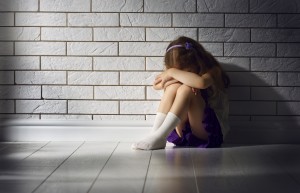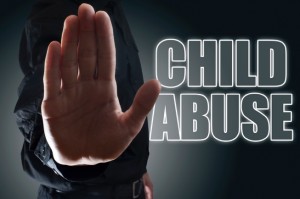Frequently Asked Questions
Child Advocacy Questions
Listed below are some of the most frequently asked child advocacy questions. If your question isn’t addressed here, please call and speak with our staff who will be happy to answer your questions.

Child Advocacy Questions
Listed below are some of the most frequently asked child advocacy questions. If your question isn’t addressed here, please call and speak with our staff who will be happy to answer your questions.

 What is Sexual Abuse?
What is Sexual Abuse?Sexual abuse occurs when a person forces a child to have any form of sexual contact or makes the child perform sexual acts. Sexual abuse may include touching private parts (clothed or unclothed), penetration using an object, forced sexual acts between children, or making the child view, read, or participate in pornography. These acts are abuse even when offenders say they were gentle and did not hurt the child.
Sexual abuse is also known as molestation and exploitation. Sexual molestation does not always mean sexual intercourse. Sometimes older children abuse younger or smaller children. Sexual acts between children become abuse or molestation when one child uses coercion, force, or violence to get the other child to do the acts. Children with sexual behavior problems should be reported to Social Service Agencies so that they can receive help.
Sexual abuse is often overwhelming to children, especially when an adult is involved. Most children are taught to trust adults. They tend to believe what adults tell them is true rather than to rely on their own feelings. This works against them in two ways. If the abuser tells the child that what is being done is okay, the child may doubt his or her own feelings that the abuse is inappropriate. Likewise, if a caregiver’s initial reaction to the child’s abuse report is “this can’t be true!” the child may wonder if his or her own feelings are wrong. Children almost never tell about abuse “to create problems.” More often, they fear that telling will make people angry at them.
Behavioural indicators of child sexual abuse
The following are indicators, not proof that sexual assault may have taken place.
- When a child reports sexual abuse either directly, or indirectly in a disguised way e.g. “I know a girl who…”
- Persistent and inappropriate sexual play with peers, toys, animals or themselves. e.g. child habitually inserting objects in her vagina or sexually aggressive behaviour with others, eg for a boy ‘humping’ toys in sexual positions.
- Detailed and overly sophisticated understanding of sexual behaviour (especially by young children).
- Sexual themes in the child’s artwork, stories or play.
- Fear of going home or expressing a desire to live in a foster home or institution.
- Regressive behaviour e.g. excessive clinginess in pre-school children or the sudden onset of soiling and wetting when these were not formerly a problem.
- A child may appear disconnected or focused on fantasy worlds.
- Sleep disturbances and nightmares.
- Marked changes in appetite.
- Fear states e.g. anxiety, depression, phobias, obsession.
- Overly compliant behaviour, as often young people who have been abused have experienced extensive grooming behaviours.
- Parentified or adultified behaviour e.g. acting like a parent or spouse.
- Delinquent or aggressive behaviour.
- Arriving late at school or leaving early.
- Poor or deteriorating relationships with peers.
- Increased inability to concentrate in school and/or sudden deterioration in school performance.
- Non-participation in school and social activities.
- Unwillingness to participate in physical/recreational activities, especially if this is due to symptoms of physical discomfort.
- Truancy/running away from home.
- Excessively seductive behaviour and/or sexual activity. (This is an effect of the sexual abuse rather than a cause).
- Drug/alcohol abuse.
- Prostitution. There is a strong correlation between child sexual abuse and late teenage prostitution.
- Self-mutilation ie cutting of arms, legs, burning home made tattoos.
- Suicidal feelings and suicide attempts.
- Fear of adults of the same sex as the abuser.
- Unexplained accumulation of money or gifts.
Behavioural indicators of sibling sexual abuse
In addition to what has been listed above, sibling abuse may be indicated by:
- Siblings who behave like boyfriend and girlfriend.
- A child who fears being left alone with a sibling.
- Siblings who appear embarrassed when found alone together.
- One sibling antagonising the other but the other not retaliating (through fear, or fear of exposing the secret), or in some cases the threat of blackmail.
Physical indicators of child sexual abuse
Some sexually abused children also come to attention because of physical indicators:
- Bruises, bleeding or other physical trauma in genital or rectal area. There may be pain or problems with urination/defecation or blood-stained and/or torn underwear. The physical discomfort may cause the child to limp, perform poorly at sport, drop out of strenuous play activities or perhaps even have difficulty in sitting still.
- Foreign bodies in genital, rectal or urethral openings.
- Abnormal dilation of the urethral, vaginal or rectal openings.
- Itching, inflammation or infection of urethral, vaginal or rectal openings.
- Presence of semen.
- Trauma to breasts, buttocks, lower abdomen or thighs.
- Unusual odours from the vaginal area.
- Sexually transmitted diseases.
- Pregnancy, especially when the child refuses to reveal any information about the father of the baby and/or complete denial of the pregnancy by the child and/or her family.
- Psychosomatic illness e.g. abdominal pain, nightmares.
Anyone who observes these behavioural indicators in a child has an obligation to consider whether or not abuse is occurring and to take action if they believe that it may be.
Child abuse is harm or threatened harm to a child’s health or welfare which can occur through non-accidental physical or mental injury; sexual abuse or attempted sexual abuse; sexual exploitation or attempted sexual exploitation.
Signs of Physical Abuse:
Physical Indicators
- Unexplained bruises, welts, human bite marks, bald spots
- Unexplained burns, especially cigarette or immersion burns
- Unexplained fractures, lacerations, or abrasions
- Swollen areas
- Evidence of delayed or inappropriate treatment for injuries
Behavioral Indicators
- Self destructive
- Withdrawn and/or aggressive – behavioral extremes
- Arrives at school early or stays late as if afraid to be at home
- Chronic runaway (adolescents)
- Complains of soreness or moves uncomfortably
- Wears inappropriate clothing to cover body (ex. sweaters; long sleeves in hot weather)
- Bizarre explanation of injuries
- Wary of adult contact
- Apprehensive when other children cry
Signs of Neglect:
Physical Indicators
- Abandonment
- Unattended medical needs
- Consistent lack of supervision
- Consistent hunger, inappropriate dress, poor hygiene
- Lice, distended stomach, emaciated
- Inadequate nutrition
Behavioral Indicators
- Regularly displays fatigue or listlessness (falls asleep in class)
- Steals food, begs from classmates
- Reports that no caretaker is at home
- Frequently absent or tardy
- Self destructive
- School dropout (adolescent)
- Extreme loneliness and need for affection
 Mandatory Reporters – In the state of Alabama, certain people are required by law to report suspected child abuse. Those people are known as mandatory reporters. They include professionals like: doctors, nurses, dentists, optometrists, pharmacists, school teachers, law enforcement officers, social workers, day care workers, mental health professionals, and many others. But all persons reporting suspected abuse or neglect (whether required by law or not) are presumed to be acting in good faith. Alabama law provides immunity from liability for actions by mandatory reporters.
Report Child Abuse
Mandatory Reporters – In the state of Alabama, certain people are required by law to report suspected child abuse. Those people are known as mandatory reporters. They include professionals like: doctors, nurses, dentists, optometrists, pharmacists, school teachers, law enforcement officers, social workers, day care workers, mental health professionals, and many others. But all persons reporting suspected abuse or neglect (whether required by law or not) are presumed to be acting in good faith. Alabama law provides immunity from liability for actions by mandatory reporters.
Report Child Abuse
When to Report – Make a report when you know or suspect that a child is being abused or neglected. Use your professional training and expertise to make this decision. It is not necessary to prove that the abuse or neglect happened; you just have to be reasonably suspicious. It is better to err on the side of wrongful reporting rather than to risk further injury or the death of a child. Do not delay in reporting if you do not have all of the needed information. Additional information can be added later.
 Be aware that:
Be aware that:
- Children are usually molested by people they know; it’s often a relative or friend of the family
- Children seldom lie about such a serious matter
- Not all children are able to tell parents directly that they have been molested. Changes in behavior, reluctance to be with a certain person, or go to a certain place may be signals that something has happened.
- A child may tell someone other than their parents. It is important not to be offended by this. Usually the child feels responsible, ashamed, and afraid they are wrong or “bad.” Consequently, they may be afraid to tell a parent first. Or, as with many cases, the abuser tells the child not to tell the parent and may even threaten them or the parent.
- Your initial reactions to your child are important. However, hearing this about your child is shocking and upsetting. If your initial reaction was not one of support, acceptance, and relative calm, then you can rectify that by going back and talking openly and honestly about how you felt.
- It is important that the child knows you do not blame him/her and that you are not angry at him/her. Also, do not treat him/her differently after he/she discloses. Try and continue things as they have been with a little more support, time, and communication from you.
What to do immediately:
- Go with the child to a private place. Ask the child to tell you what happened in his/her own words. Listen carefully. Do not ask details.
- Tell the child that you are glad he/she told you what happened and that telling was the right thing to do.
- If you suspect your child has an injury, take him/her to your regular pediatrician or emergency room.
- Contact the Department of Human Resources / Police Department for the county in which you live. This is a crime and must be reported.
- Be supportive for your child as he/she needs you. Allow him/her to talk about it if he/she wants to, but do not quiz or force him/her to talk.
Helping your child following the assault
- Continue to believe your child and do not blame him/her for what happened
- Consult with your pediatrician regarding needs for medical examination
- Instruct your child to tell you immediately if the offender attempts sexual molestation again or bothers him/her in any way.
- Give your child reassurance and support that he/she is okay. Do not encourage him/her to “just forget it.” Trying to sweep the problem under the rug usually causes more problems because it will not go away.
- Respond to questions or feelings your child expresses about the molestation with a calm, matter-of-fact attitude, but do not pressure him/her.
- Respect the privacy of your child by not telling a lot of people. If you feel you need to let someone know, other than the authorities, ask the child first and find out how he/she feels about it.
- Try to continue with the regular routine in the home. Expect the usual chores, bedtimes, rules. etc.
- Take time to talk it over privately with someone you trust. Express your feelings; DO NOT discuss the situation with others in front of your child or other children.
- Do not feel afraid to express some of your feelings to and with your child. It may help them to know you are angry too, and together, work on those feelings. Appearing as if you are fine and unaffected may make the child feel you do not care.
- Be careful not to question your child about the abuse. If you do, you can jeopardize the case in court against the abuser.
- If your child wants to talk about it, listen supportively, but do not probe
 The Grooming Process
The Grooming Process
Studies of sexual offenders have found that deliberate tactics are often used to select victims and engage them in sexual abuse. This is described as the grooming process. Sexual offenders have often claimed to identify vulnerable children – for example, those who are less able to tell about the abuse, or who are unhappy or needy.
There are a number of specific techniques that offenders use to mask their behaviour prior to the assault, as well as during and after the assault. Many deliberately establish themselves as the kind of person you wouldn’t suspect to be a sex offender because they are “too nice” or an upstanding person in the community who helps a lot of people out. This is a powerful tactic as it allows offenders to become embedded in a community and be involved in a number of socially responsible activities such as youth groups, churches and schools, which can give the offender access to a number of potential victims without ever being suspected. This double life causes parents and others to drop their guards and to allow access to their children without suspecting anything. It is important to also note, that the majority of offenders are known to the family, and too often are family members.
The second tactic is the ability to charm, to be likable, to radiate sincerity and truthfulness. This is crucial in gaining access to children, and the power of this tactic should not be underestimated. Some offenders will attempt to establish peer relationships with people much younger than themselves, as they prefer the company of children to adults, rather than looking for age-appropriate relationships.
How they start
Sexual offenders recruit children by establishing a trusting relationship, for example spending time with them and listening to them. They may treat the child as ‘special’; giving them presents and compliments. Offenders also use gifts and trickery to manipulate and silence the child into keeping the sexual assault a secret. This treatment can isolate the child from siblings, friends or parents. The offender may also establish a trusting relationship with the family and friends of a child, in order to have access to the child alone. When they have obtained the truth of the child and family it makes it much easier for the offender to sexually abuse the child. It is also important to remember that the offender often grooms the family in similar ways by buying gifts or helping out around the house as a way to gain trust from the family.
Sexual offenders typically plan their sexual abuse of children with care. They may gradually desensitise the child and violate their boundaries. For example, they may spend a lot of time with the child when he or she is bathing, dressing, or going to bed. They may kiss and hug the child a lot. There may be ‘accidental’ sexual touching, or sexual touching as a game. There may be talk about sex and sexual jokes as well as tickling, wrestling, or being rough towards the child as a sign of affection. If the abuse isn’t stopped, the behavior progresses to increasingly intimate acts.
Keeping the abuse secret
The child is taught – by threats, manipulation, blackmail, bribes and punishments – to keep the abuse a secret. The offender assures the child that what is happening I ‘right’, and convinces them that if they tell about the sexual abuse, something terrible will happen – for example, the family will fall apart, threaten to hurt the child’s family or pets, tell the child that their parents won’t believe them, or that the offender may go to prison. At the same time, the offender gives the child the impression that they have consented and that they are in a ‘relationship’ with the offender, or even that they initiated the relationship. In this way offenders shift the blame from themselves and onto the child. The child may then feel responsible for the abuse, and feel too ashamed or scared to tell anyone.
If you think a potential offender is grooming your child
Trust your gut instinct and then act on it. Sometimes parents can be afraid of how their children will react if they prohibit their child seeing a person they like, but it is important if you have concerns about a person’s relationship with a child, be willing to stop all contact immediately between your child and the potential offender. It is also important to listen for statements or questions from your child that would support your suspicions, and to encourage your child to tell you more about the time he or she spends with the person.
It may also be important for you to give your child some prevention tools to help identify inappropriate behavior such as talking regularly about ways they can say no or protect themselves if anyone makes them feel uncomfortable.
It is also important to note that these tactics that have been put in place by the offenders are so strong that children are unaware that the sexual abuse is not happening to all children. Many children can go years before understanding that what is/has been happening, is NOT okay. Disclosures may not happen until a child learns about sexual behaviors in health education classes at school, watching television shows or movies that show someone’s experience of sexual assault, or if a friend or relative discloses.
When you discover that your child has been sexually assaulted, there may be an array of emotions that you could experience. These emotions range from shock, outrage, guilt, frustration, shame, fear, and grief. There are some questions that may go round and round in your mind after you find out about the abuse, and looking back it might be easy to see what was really going on, but sexual abuse is the last thing that most people would expect to find in their family.
 What to Expect from Counseling Services
What to Expect from Counseling ServicesWhat is therapy?
Therapy is a unique opportunity for a child to meet with a trained professional who is willing and able to work together to establish goals for treatment and a pathway toward achieving those goals. For children who are coming to therapy for a history of abuse, this process also uses research-based treatment proven effective in helping children with the trauma.
How will counseling help my child?
The counseling relationship is a safe place for your child to label and express feelings and thoughts related to the abuse, such as anger, fear and sadness. Your child will also be assisted in reestablishing the personal boundaries and sense of self-worth taken away by the abuser. Your child will learn that the abuse was not his/her fault.
How long will my child need to come to counseling?
Length of time in counseling varies. Your child’s counselor will help your child set goals to be reached in therapy. An individual treatment plan will be made and reviewed periodically. Your child may need to seek counseling in the future when leaving home, getting married, or having a child.
How do I request counseling for my child?
You can request for a referral to be made for your child through any of the professionals dealing with your child’s case. If your child may be best served by therapeutic services offered by Cramer Children’s Center, arrangements will be made with you to schedule an intake session. If services may be best offered by another therapeutic center, arrangements will be made with you to receive contact information for that center. You can contact the Therapist or Victim Advocate at Cramer Children’s Center at 256-760-1140.
 The Legal System
The Legal System
It is very difficult to predict what will happen for you and your child after the report has been made and the case is in the legal system. Sometimes the chance to speak up about what happened can be a good thing for the child – whether or not the abuser is convicted. Many children are relieved to think that someone more powerful will help protect them and tell the offender that she/he was wrong. For other children, however, the events following the report can be upsetting.
The legal process often moves at its own pace, different from your child’s need to heal. Emotional wounds may be reopened by the various proceedings, which take place over a period of one to two years. The court date may be delayed repeatedly. It is best to try to remember that people are working to gain the best outcome for you and your child. The team approach to these cases keeps the process as simple as possible.
To make the process easier for your child, it is important to work with the authorities. The legal system may be able to protect your child from future unsupervised contact with the offender. Working with the legal system is also a way to keep other children safe.
To help guide you through the legal process, the District Attorney’s office will assign a Victim Service Officer (VSO) to you and your case. This person will help you through this difficult period and will be available to answer questions, explain the types of victim assistance and services for which you may be eligible, and generally help you through this difficult period. Also, the VSO will serve as your direct liaison to the District Attorney’s office and the particular attorney assigned to prosecute your case. Once the investigation in your case is completed and your case is received in the District Attorney’s office for prosecution, you will be notified by letter of who your Victim Service Officer is. Please contact your VSO as soon as possible for assistance throughout the entire process.
How the Legal System Responds to Abuse
The legal system’s response to abuse can be confusing to children and families. Part of this confusion stems from the fact that two different “legal systems” can be working on the same case at the same time. These two systems are the “criminal” system and the “civil” system. In addition, there are two different court systems that can work on a child abuse case – Criminal Court and District Court. Both courts may work on the same case at the same time, but they have different purposes.
The Criminal Court is concerned primarily with guilt or innocence of the accused and often uses a trial to decide on the suspect’s guilt or innocence. The criminal trial focuses on issues such as:
- Is there evidence to prove the child was abused?
- What illegal acts occurred?
- Was there a confession?
- If proven guilty, what punishment should the offender receive?
The District Court is concerned primarily with the safety of the child and focuses on issues like custody, supervised visitation, and counseling. A number of different court hearings can be held to decide these issues. The decisions in the civil system do not depend on whether or not the criminal system finds guilt
Working with the System
The system is responsible for protecting children and holding offenders accountable. The more information and cooperation you give to the team of professionals working in the system, the better job they can do on the case.
Support people are available to help you. If assigned to your case, the Victim Advocate will be empathic and familiar with the legal system and child abuse and is available to help. A Victim Services Officer (at the District Attorney’s Office) is also available to keep you informed about the status of the case, help you work through the legal system, and assist you in obtaining financial assistance, if you are eligible.
Here are some basic tips for working with professionals in the system:
- Be calm and reassuring to your child. Please do not coach your child on what to say. It is important for the story to come out in your child’s words and in your child’s own time.
- Try to provide as many facts as you can when you are asked for information. Cases are built on the four W’s: who, what, when, and where. Avoid guessing if you don’t know the answer to a question – it is much better to say you do not know.
- Tell how you feel and why you feel that way. Your feelings are valuable in giving investigators insight. Although only facts are allowed in court, feelings can help give investigators ideas for how to proceed.
- Always be honest, even though the truth may not seem favorable to yourself or others.
- Try not to overreact. It is a difficult time and emotions are probably running high. Losing control can hurt the case and overshadow the needs of the innocent victim, your child.
Getting Ready for Court
If there is to be a trial, your Victim Service Officer will take your child to the courtroom for a tour. You will also be involved in this process. Giving the child an early look at the courtroom and preparing him/her on what to expect can ease some of the child’s fears, which may include the following:
- Seeing the abuser again
- Not wanting to go
- Wanting it to be over
- Wondering where you will be
Limits of the Legal System
While the legal system is very important to your child’s case and can be emotionally draining for you and your family, it is only one step in the process and is not essential to your child’s recovery. Maintaining a focus on your child’s well being will help you to prioritize your emotional energy and hopefully lessen the frustrations of the legal process.
Another thing to remember: Day after day, therapists who talk with adult survivors of child sexual abuse hear them say, “My parents didn’t do anything about it.” However, your child will not say that if you are supportive and explain that you will not tolerate abuse.
Celebrate when the court case has ended. No matter what the outcome, conviction or not, tell the child it is over. Acknowledge that you both did your best and worked hard. Recognize your efforts and the end of this stage of the process.
 Continue to believe your child and do not blame him/her for what happened.
Continue to believe your child and do not blame him/her for what happened.
Instruct your child to tell you immediately if the offender attempts sexual molestation again or bothers him/her in any way.
Give your child reassurance and support that he/she is okay. Do not encourage him/her to “just forget it.” Trying to sweep the problem under the rug usually causes more problems because it will not go away.
Respond to questions or feelings your child expresses about the molestation with a calm, matter-of-fact attitude, but do not pressure him/her.
Respect the privacy of your child by not telling a lot of people. If you feel you need to let someone know, other than the authorities, ask the child first and find out how he/she feels about it.
Try to continue with the regular routine in the home. Expect the usual chores, bedtimes, rules. etc.
Take time to talk it over privately with someone you trust. Express your feelings; DO NOT discuss the situation with others in front of your child or other children.
Do not feel afraid to express some of your feelings to and with your child. It may help them to know you are angry too, and together, work on those feelings. Appearing as if you are fine and unaffected may make the child feel you do not care.
Be careful not to question your child about the abuse. If you do, you can jeopardize the case in court against the abuser.
If your child wants to talk about it, listen supportively, but do not probe.
